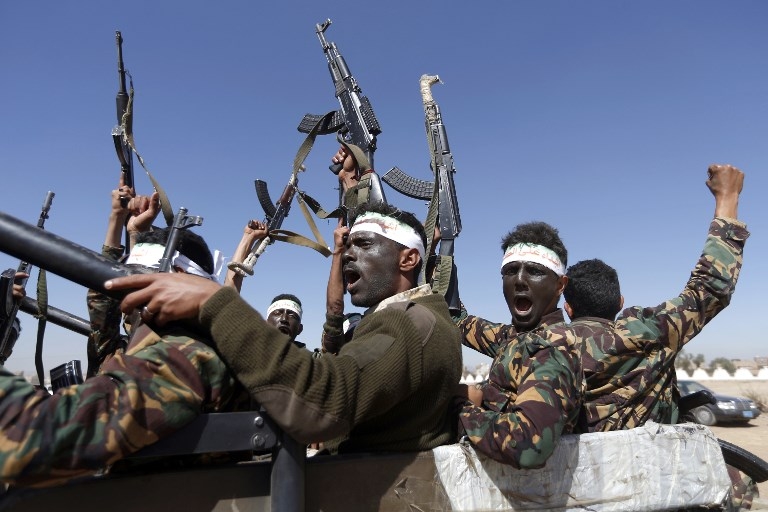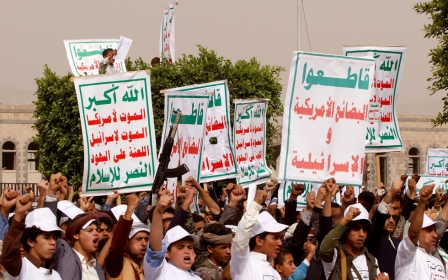Houthis: We're temporarily stopping attacks on shipping lanes

Yemen’s Houthi leadership has ordered a short-term stop to all naval military activity, according to a Tuesday statement issued by the armed group.
Last week, Saudi Arabia said that it was "temporarily halting" all oil shipments through the strategic Red Sea shipping lane of Bab al-Mandeb after an attack on two big oil tankers, which it said was carried out by the Houthis.
Tuesday's Houthi statement – mentioned on Twitter by the group's leader Mohammed Ali al-Houthi and by its defence ministry - said that the marine ceasefire will begin on 1 August and end on 15 August.
“The unilateral halt in naval military operations will be for a limited time period and could be extended and include all fronts if this move is reciprocated by the leadership of the coalition,” the head of the committee, Mohammed Ali al-Houthi, said in the statement, which referred to the Saudi-led coalition at war with the Houthis.
There have been a number of notable naval attacks recently. Last week, on Twitter, the Houthis' Al Masirah TV said they had attacked a warship named the Dammam off the western coast of Yemen.
In a separate statement carried on the Houthi-run Saba news agency, the group said it had also targeted a coalition frigate off the coast of al-Durayhmi, in southern Hodeidah.
The Houthis, who have also launched missile attacks on Saudi cities, including the capital Riyadh, have previously threatened to block the strait of Bab al-Mandeb several times, in order to force the coalition to stop its air strikes.
These Saudi air strikes have been particularly intense in the Houthi stronghold of Saada, in Yemen's north-west. A UNICEF-funded water network in the Al Safra district of Saada was recently bombed, leaving thousands of residents without clean drinking water.
In 2016, an estimated 4.8 million barrels per day of crude oil and refined petroleum products flowed through the Bab al-Mandeb strait towards Europe, the United States and Asia, according to the US Energy Information Administration.
The oil tankers allegedly attacked by the Houthis were both operated by a Saudi company.
The Western-backed coalition led by Saudi Arabia launched an offensive in June to wrest Yemen's main port of Hodeidah from the Houthis, in a bid to cut off the primary supply line of the movement, which holds the most populated areas of Yemen, including the capital Sanaa.
Earlier this month, the alliance called a halt to the offensive in order to give UN efforts to reach a political solution a chance. Such a solution would avert an assault on the port, which is a lifeline for millions of Yemenis.
One of the coalition's main justifications for intervening in Yemen's war in 2015 was to protect shipping routes such as the Red Sea. It has said it foiled previous attacks there in April and May.
The coalition said in a statement carried by Saudi state media in the previous week that the Houthis had attacked one oil tanker west of Hodeidah.
"Thankfully the attack failed due to immediate intervention of the coalition's fleet," it said without providing details.
New MEE newsletter: Jerusalem Dispatch
Sign up to get the latest insights and analysis on Israel-Palestine, alongside Turkey Unpacked and other MEE newsletters
Middle East Eye delivers independent and unrivalled coverage and analysis of the Middle East, North Africa and beyond. To learn more about republishing this content and the associated fees, please fill out this form. More about MEE can be found here.




